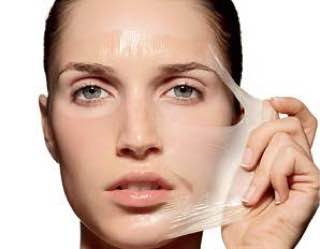A chemical peel removes layers of skin using a chemical solution, revealing the more young skin beneath. Chemical peels can help to minimise or repair fine lines and wrinkles, acne, scars, uneven skin tone, and other skin flaws. The degree of your peel and the type of skin issue treated are determined by different chemicals.

What exactly is a chemical peel?
A chemical peel, also known as chemexfoliation or dermapeeling, improves the appearance of your skin by using a chemical solution. A chemical solution is applied to your skin during this therapy, causing stress or injury to the layers of your skin. The skin layers finally peel away, revealing younger-looking skin. The new skin is usually smoother and has fewer creases and wrinkles, as well as a more even hue and a brighter complexion.
What ailments are treated with a chemical peel?
Chemical peels are used to treat specific skin disorders or to improve your look by improving your skin’s tone and texture.
Chemical peels are most typically used on the face, neck, and hands. They can assist in lowering or improving:
Sun damage, ageing, and hereditary factors all contribute to fine lines and wrinkling around the eyes and lips.
Acne of certain sorts.
Scarring is minor.
Sun spots, age spots, liver spots, freckles, and uneven skin colour are all examples of skin imperfections.
Actinic keratosis refers to precancerous scaly patches.
Rough skin, scaly spots, and a drab complexion
Melasma (dark patches) caused by pregnancy or birth control medications.
The depth of your peel will be determined in collaboration with your dermatologist. This mutual choice may differ depending on your skin’s health and treatment goals.
Chemical peels do not work effectively on sags, bulges, deep scars, deep facial lines, or more severe wrinkles.
Other cosmetic surgery procedures, such as carbon dioxide laser resurfacing, a face lift, brow lift, eye lift, or soft tissue filler, will be better options if these are your concerns. A dermatologic surgeon can advise you on the best course of action to address your issues.
Is it safe to use a chemical peel on all skin types?
In general, superficial peels are suitable for all skin types. However, if you have a darker skin tone, you are more likely to have skin darkening after treatment. This is known as post-inflammatory hyperpigmentation. If you have naturally darker skin, you should consult your dermatologist about less aggressive treatments to lessen the risk of hyperpigmentation.
Chemical peeling is also not advised if you:
Have a history of irregular scarring on your skin.
Make your scars more colourful.
Have skin issues or use medications that cause your skin to become more sensitive.
Can’t avoid the light during the healing phase.





